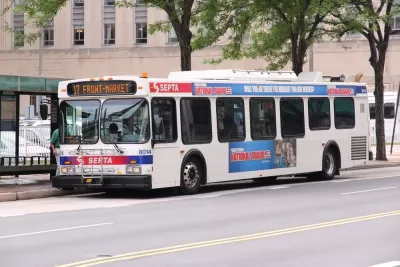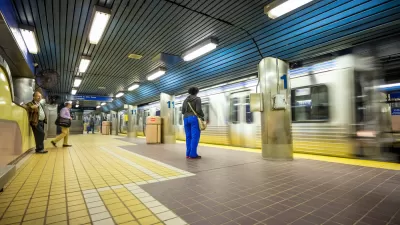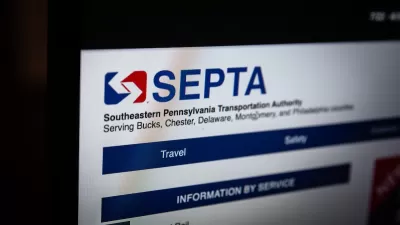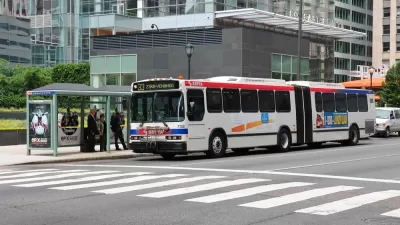A two-year pilot program from SEPTA offers free fares to 25,000 low-income riders.

A two-year pilot program in Philadelphia offers free transit fare to low-income residents. As Maylin Tu explains in Next City, “Participants in Philly’s Zero Fare pilot must be 18 to 64 years old, have an income at 150% or less of the federal poverty line, and be Philadelphia residents.”
The program launched last August and, as of mid-April, participants took over 1.8 million trips. “Increasing ridership through the Zero Fare program could enhance trust and safety in the system as a whole, adding “eyes on the street’,” says Connor Descheemaker, coalition manager for Transit Forward Philadelphia.
The program is unique in that eligible residents don’t need to take action. “Unlike many similar programs, there is no need to apply. Instead, the city used a lottery system to select 90% of participants from a pool of eligible residents enrolled in a qualifying low-income benefits program. For the other 10%, the city worked with community-based organizations to reach those who might not be eligible due to immigration status.”
The city acknowledges the program could benefit a much larger segment of the population if expanded. However, future funding is uncertain. “Unlike other cities, Philadelphia is extremely limited in its ability to directly fund transit, says Descheemaker, due to a state legislature split along partisan lines.”
FULL STORY: Philly Is Giving Free SEPTA Rides to 25,000 Low-Income Residents. No Strings Attached.

Planetizen Federal Action Tracker
A weekly monitor of how Trump’s orders and actions are impacting planners and planning in America.

Congressman Proposes Bill to Rename DC Metro “Trump Train”
The Make Autorail Great Again Act would withhold federal funding to the system until the Washington Metropolitan Area Transit Authority (WMATA), rebrands as the Washington Metropolitan Authority for Greater Access (WMAGA).

The Simple Legislative Tool Transforming Vacant Downtowns
In California, Michigan and Georgia, an easy win is bringing dollars — and delight — back to city centers.

The States Losing Rural Delivery Rooms at an Alarming Pace
In some states, as few as 9% of rural hospitals still deliver babies. As a result, rising pre-term births, no adequate pre-term care and "harrowing" close calls are a growing reality.

The Small South Asian Republic Going all in on EVs
Thanks to one simple policy change less than five years ago, 65% of new cars in this Himalayan country are now electric.

DC Backpedals on Bike Lane Protection, Swaps Barriers for Paint
Citing aesthetic concerns, the city is removing the concrete barriers and flexposts that once separated Arizona Avenue cyclists from motor vehicles.
Urban Design for Planners 1: Software Tools
This six-course series explores essential urban design concepts using open source software and equips planners with the tools they need to participate fully in the urban design process.
Planning for Universal Design
Learn the tools for implementing Universal Design in planning regulations.
Smith Gee Studio
City of Charlotte
City of Camden Redevelopment Agency
City of Astoria
Transportation Research & Education Center (TREC) at Portland State University
US High Speed Rail Association
City of Camden Redevelopment Agency
Municipality of Princeton (NJ)





























